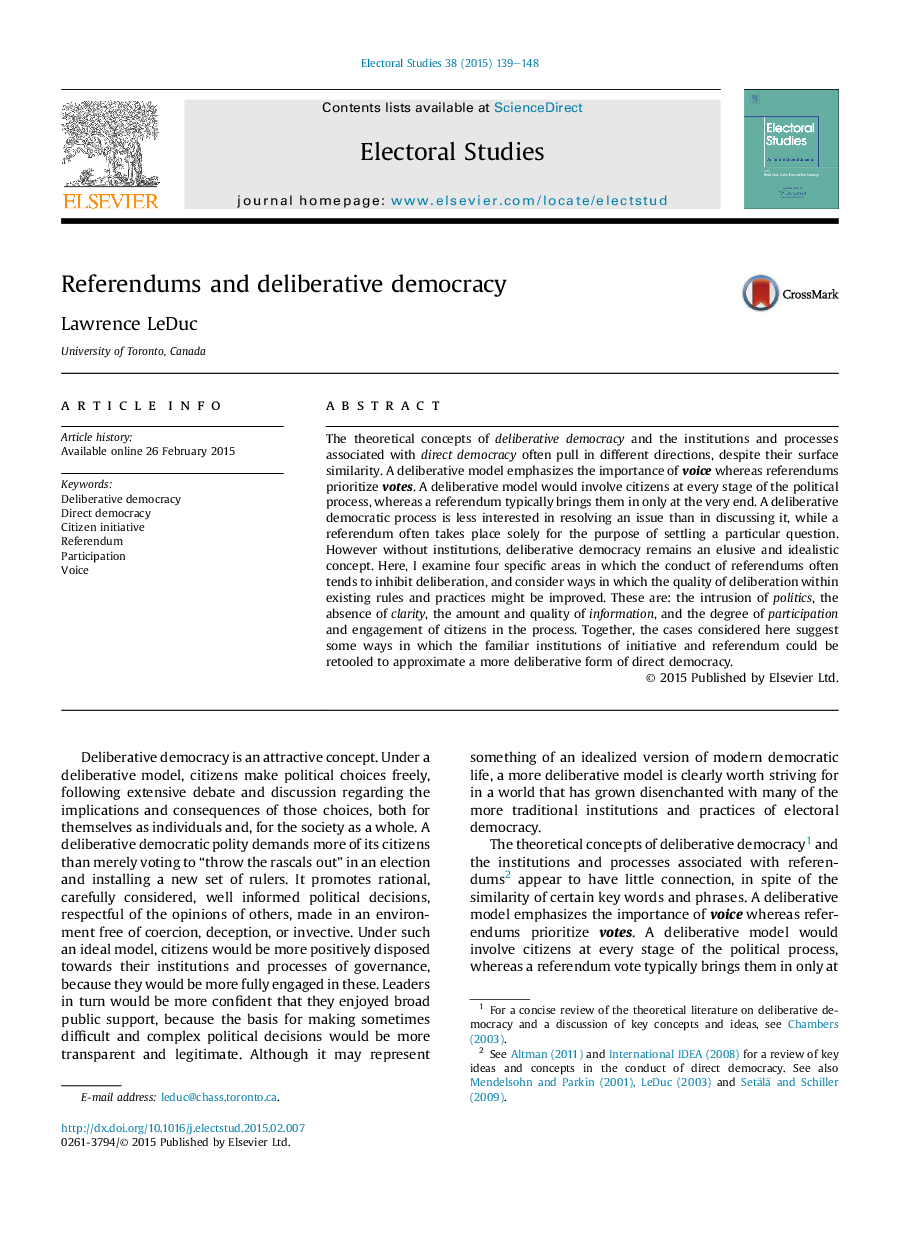| Article ID | Journal | Published Year | Pages | File Type |
|---|---|---|---|---|
| 1051723 | Electoral Studies | 2015 | 10 Pages |
The theoretical concepts of deliberative democracy and the institutions and processes associated with direct democracy often pull in different directions, despite their surface similarity. A deliberative model emphasizes the importance of voice whereas referendums prioritize votes. A deliberative model would involve citizens at every stage of the political process, whereas a referendum typically brings them in only at the very end. A deliberative democratic process is less interested in resolving an issue than in discussing it, while a referendum often takes place solely for the purpose of settling a particular question. However without institutions, deliberative democracy remains an elusive and idealistic concept. Here, I examine four specific areas in which the conduct of referendums often tends to inhibit deliberation, and consider ways in which the quality of deliberation within existing rules and practices might be improved. These are: the intrusion of politics, the absence of clarity, the amount and quality of information, and the degree of participation and engagement of citizens in the process. Together, the cases considered here suggest some ways in which the familiar institutions of initiative and referendum could be retooled to approximate a more deliberative form of direct democracy.
